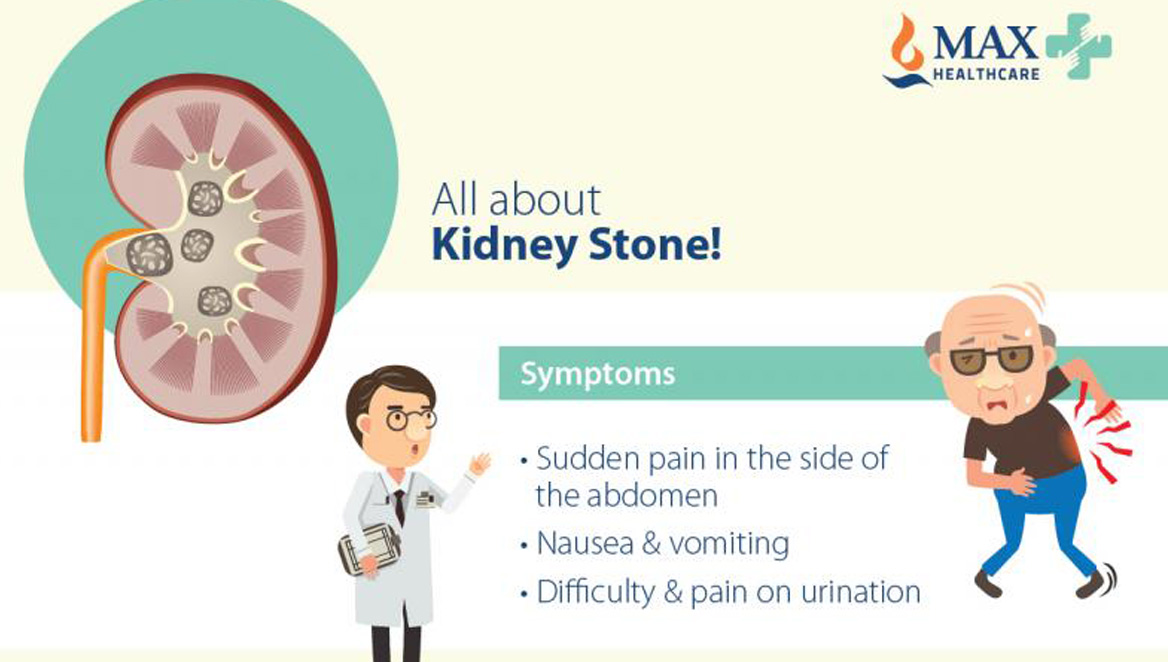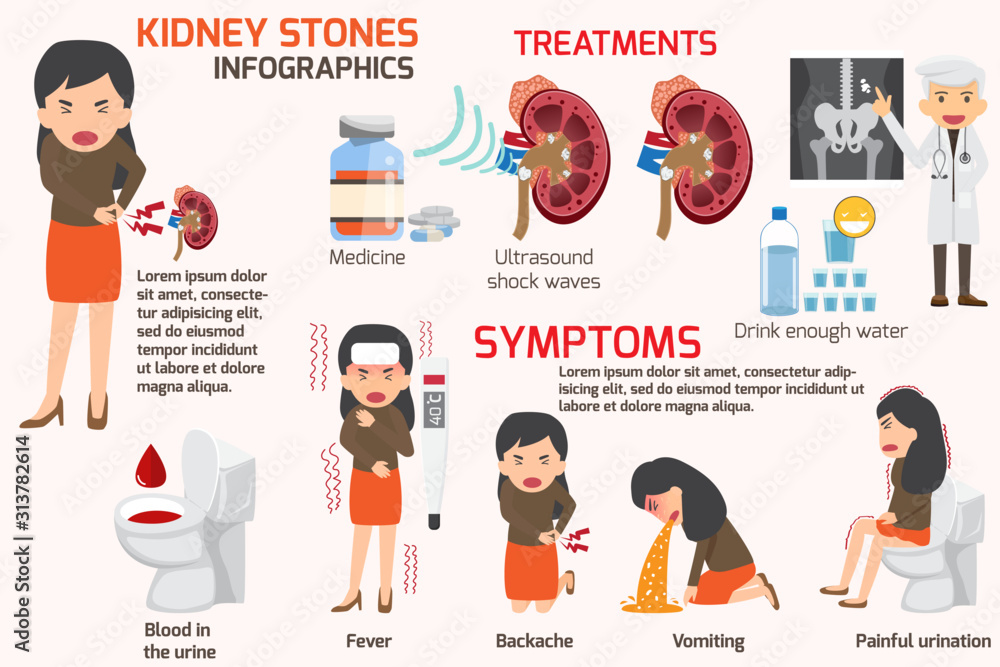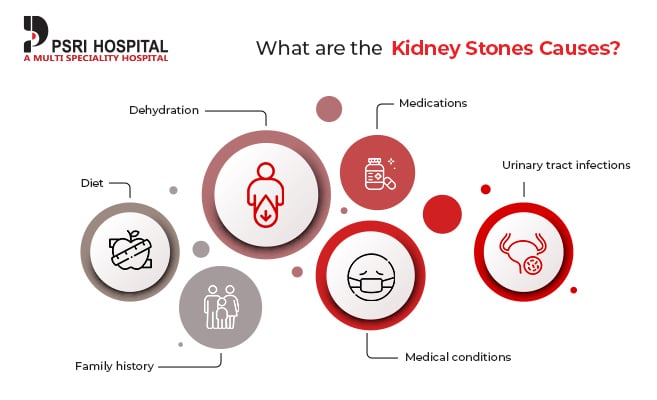Uncover the surprising culprits behind kidney stones and learn how simple changes can prevent painful and recurrent episodes.
Table of Contents
- Introduction to Kidney Stones
- How Kidney Stones Form
- Why Kidney Stones Hurt
- Common Causes of Kidney Stones
- Signs of Kidney Stones in Kids
- How Doctors Find Kidney Stones
- Treating and Preventing Kidney Stones
- Eating and Drinking for Healthy Kidneys
- When Kidney Stones Need Extra Help
- Fun Facts about Kidneys and Kidney Stones
- Summing Up: Remembering What Matters
- FAQs about Kidney Stones
Introduction to Kidney Stones
Kidney stones are small, hard deposits that can form in our kidneys. They can look like tiny rocks and are usually made up of minerals and salts. Kidney stones are not supposed to be in our bodies, but sometimes they can develop and cause problems.
Our kidneys are like filters in our bodies. They help clean our blood and remove waste and extra water by making urine. Sometimes, when there is too much of certain substances in our urine, these substances can stick together and form kidney stones.
How Kidney Stones Form
Have you ever wondered how kidney stones form? Let’s explore the fascinating process of how these tiny, hard masses develop inside our kidneys. Sometimes, certain body issues like high blood pressure and too much cholesterol can affect this formation.
The Role of High Blood Pressure
High blood pressure can play a significant role in the formation of kidney stones. When your blood pressure is high, it can cause changes in the kidney’s filtration process, leading to the build-up of substances that can form stones. So, it’s essential to keep your blood pressure in check to reduce the risk of developing kidney stones.
Cholesterol’s Impact on Kidney Stones
Did you know that high cholesterol levels could also contribute to the development of kidney stones? When there is an excess of cholesterol in the blood, it can lead to the accumulation of certain substances that can form stones in the kidneys. Eating a healthy diet and exercising regularly can help keep your cholesterol levels in check and lower the chances of kidney stone formation.
Why Kidney Stones Hurt
When kidney stones start moving through the small tubes in our bodies, it can cause a lot of pain. This pain occurs because the sharp edges of the stones can scrape against the delicate lining of the urinary tract, causing irritation and discomfort. Imagine trying to push something big through a small space – it’s not easy, and it can hurt!

Image courtesy of stpeteurology.com via Google Images
This pain is our body’s way of telling us that something is not quite right. Kidney stones can also cause pain when they get stuck in the tubes and block the flow of urine. This blockage can lead to pressure building up in the kidneys and the urinary tract, causing even more pain.
So, if you ever hear someone say that kidney stones hurt a lot, now you know why! It’s all about those tiny stones causing big problems in our bodies.
Common Causes of Kidney Stones
When it comes to kidney stones, there are several common causes that can lead to their formation. Let’s explore some of the key factors that contribute to the development of these painful stones.
High Blood Pressure and Kidney Stones
Having high blood pressure can actually increase the risk of developing kidney stones. When blood pressure is too high, it can lead to changes in the blood vessels in the kidneys, affecting their ability to function properly. This, in turn, can promote the formation of kidney stones.
Urinary Tract Infections (UTIs) Leading to Stones
Urinary tract infections, commonly known as UTIs, can also play a role in the formation of kidney stones. When bacteria infect the urinary tract, it can create an environment that is conducive to the development of stones. The presence of an infection can alter the chemical composition of the urine, making it easier for crystals to form and grow into stones.
Signs of Kidney Stones in Kids
Kidney stones can be painful for anyone, including kids. If you suspect your child might have kidney stones, there are certain signs to look out for. Keep an eye on their symptoms to ensure they get the right treatment.

Image courtesy of stock.adobe.com via Google Images
Symptoms to Watch For
1. Pain in the side or lower back: If your child complains of constant pain in their side or lower back that doesn’t go away, it could be a sign of kidney stones.
2. Blood in the urine: If you notice blood in your child’s urine, it’s essential to consult a doctor. This could indicate the presence of kidney stones.
3. Frequent urination: Does your child suddenly need to go to the bathroom more often than usual? Pay attention, as this could be a sign of kidney stones.
4. Nausea and vomiting: If your child experiences persistent nausea and vomitings, it might be due to kidney stones causing discomfort.
Confusion with Low Blood Pressure Symptoms
It’s important to note that some symptoms of kidney stones, like nausea or fatigue, can be mistaken for signs of low blood pressure. If you’re unsure about the symptoms your child is experiencing, it’s always best to seek medical advice.
How Doctors Find Kidney Stones
When someone is experiencing symptoms that suggest they may have kidney stones, it’s important for doctors to determine if this is indeed the case. In order to do so, medical professionals utilize various tests and tools to diagnose the presence of kidney stones.
Diagnostic Tests for Kidney Stones
One common method used by doctors to detect kidney stones is through imaging tests. These tests include X-rays, CT scans, and ultrasounds, which provide detailed pictures of the kidneys and urinary tract. The images produced can reveal the presence of stones and their size, aiding doctors in making an accurate diagnosis.
Lab Tests for Kidney Stones
In addition to imaging tests, doctors may also order lab tests to analyze urine and blood samples. These tests can help identify substances in the body that may contribute to the formation of kidney stones, such as calcium, uric acid, and oxalate. By examining these levels, doctors can better understand the underlying causes of the stones.
Overall, the combination of imaging tests and lab tests enables doctors to effectively identify and diagnose kidney stones. This information is crucial in developing a treatment plan tailored to the individual needs of the patient. Through these diagnostic methods, doctors can help alleviate symptoms and prevent future occurrences of kidney stones.
Treating and Preventing Kidney Stones
When it comes to dealing with kidney stones, there are ways to both treat them and prevent them from coming back. One important component of kidney stone management is understanding the benefits of minerals like magnesium.

Image courtesy of www.findatopdoc.com via Google Images
Magnesium Benefits for Kidney Stones
Magnesium is a vital mineral that can play a key role in preventing the formation of kidney stones. It helps by binding to oxalate, a substance that can contribute to stone formation, and prevents it from crystallizing in the kidneys. By including magnesium-rich foods in your diet, such as nuts, seeds, and leafy greens, you can help lower your risk of developing kidney stones.
| Trigger | Description |
|---|---|
| Diet | Consuming high amounts of oxalate-rich foods such as spinach, beets, and nuts can contribute to the formation of kidney stones. |
| Dehydration | Not drinking enough water can lead to concentrated urine, which increases the risk of kidney stone formation. |
| Medications | Certain medications, such as diuretics, antacids, and calcium-based supplements, can increase the likelihood of kidney stones. |
| Genetics | Individuals with a family history of kidney stones may be more susceptible to developing them themselves. |
| Medical Conditions | Underlying medical conditions, such as hyperparathyroidism or urinary tract infections, can also trigger the formation of kidney stones. |
Additionally, staying hydrated by drinking plenty of water can also help to flush out any small stones before they grow larger and cause discomfort. Keeping a close eye on your hydration levels and maintaining a healthy, balanced diet can go a long way in preventing kidney stones from forming in the first place.
Speaking to a healthcare provider about your risk factors and receiving personalized advice on incorporating magnesium and other stone-preventing strategies into your daily routine can further optimize your kidney health.
Eating and Drinking for Healthy Kidneys
Just like a car needs good fuel to run smoothly, our kidneys need the right kind of fuel to stay healthy. Eating a balanced diet that includes fruits, vegetables, whole grains, and lean proteins can help keep your kidneys in top shape. Foods rich in magnesium, like spinach, nuts, and seeds, are especially beneficial for kidney health.
Hydrating for Kidney Health
Drinking plenty of water is key to maintaining healthy kidneys. Water helps to flush out toxins and waste from our bodies, reducing the risk of kidney stones. Aim to drink at least 6-8 glasses of water a day to keep your kidneys happy and hydrated.
Avoiding Sugary Drinks and Processed Foods
Sugary drinks and processed foods can put extra strain on your kidneys. Too much sugar can lead to inflammation and kidney damage over time. Opt for water, herbal teas, or homemade fruit smoothies instead of sugary sodas to give your kidneys a break.
Maintaining a Healthy Weight
Carrying excess weight can increase your risk of developing kidney stones. Eating a balanced diet and staying active can help you maintain a healthy weight, reducing the strain on your kidneys. Remember, a healthy body helps support healthy kidneys!
When Kidney Stones Need Extra Help
Sometimes, kidney stones can be quite stubborn and refuse to pass through the urinary tract on their own. In these cases, extra help may be needed to get rid of them and relieve the pain they cause.

Image courtesy of psrihospital.com via Google Images
Medicine for Kidney Stones
Doctors may prescribe special medications to help break down the kidney stones into smaller pieces, making it easier for them to pass through the urine without causing as much discomfort. These medicines can also help relax the muscles in the urinary tract, allowing the stones to move more freely.
Surgery for Stubborn Stones
If the kidney stones are too large or are causing severe pain, surgery may be necessary to remove them. There are different types of surgeries available, depending on the size and location of the stones. Your doctor will recommend the best option for you if surgery is needed.
Preventing Future Kidney Stones
Once the kidney stones have been treated and removed, it’s essential to take steps to prevent them from coming back. This may involve making changes to your diet, staying hydrated, and taking supplements like magnesium to help keep your kidneys healthy and stone-free.
Fun Facts about Kidneys and Kidney Stones
Did you know that kidneys are not just important for removing waste from our bodies, but they also help in maintaining the right balance of water and minerals in our blood?
Kidneys are shaped like beans and are about the size of your fist. They are located on either side of your spine, deep inside your body.
One fun fact about kidney stones is that they can look different depending on what they are made of. Some can be as small as a grain of sand, while others can grow as big as a golf ball!
Have you ever wondered why they are called kidney stones? Well, it’s because they are hard, rock-like clumps that form inside your kidneys and can cause a lot of pain when they move through your urinary tract.
Summing Up: Remembering What Matters
After learning about kidney stones and how they form, it’s essential to remember a few key points. Kidney stones can be caused by factors like high blood pressure and high cholesterol. When these stones form, they can cause intense pain as they move through our bodies. Common causes of kidney stones include high blood pressure and urinary tract infections. Signs of kidney stones in kids might include symptoms like low blood pressure.

Image courtesy of www.dreamstime.com via Google Images
When it comes to treating and preventing kidney stones, magnesium can play a crucial role. Eating and drinking foods rich in magnesium can help keep our kidneys healthy and prevent the formation of stones. In some cases, extra help from doctors might be needed to address kidney stones, such as medication or surgery.
By understanding the causes, symptoms, and treatments of kidney stones, we can take proactive steps to care for our kidneys and overall health. Remember to drink plenty of water, eat a balanced diet, and listen to your body for any signs of trouble. Kidney health is an important part of staying healthy and feeling your best!
FAQs about Kidney Stones
What are Kidney Stones?
Kidney stones are small, hard mineral deposits that form inside your kidneys. They can be different sizes and shapes and may cause pain when they move through the tubes in your body.
Can Low Blood Pressure Cause Kidney Stones?
Low blood pressure is not usually a direct cause of kidney stones. However, dehydration from low blood pressure can lead to certain types of kidney stones. It’s essential to stay hydrated to prevent them.
How Does High Blood Pressure Affect Kidney Stones?
High blood pressure can increase the risk of kidney stones forming. It can affect the amount of calcium and other minerals in your urine, which may contribute to stone development. Keeping your blood pressure under control can help prevent kidney stones.
Are There Benefits of Magnesium for Kidney Stones?
Magnesium is a mineral that can help prevent certain types of kidney stones by binding to oxalate in your intestines, so your body doesn’t absorb it. Eating foods rich in magnesium, like nuts and seeds, can be beneficial in reducing the risk of kidney stones.





